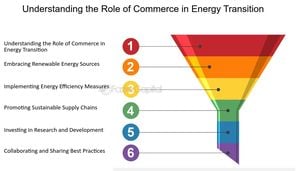Former President Donald Trump is once again making headlines with his controversial cabinet picks and the potential actions he may take as he eyes the 2024 presidential election. His appointments have sparked debates across political aisles, igniting discussions about their qualifications and the visions they represent for the future of American governance.
One of the most notable aspects of Trump's potential cabinet choices is their alignment with his previous administration's policies, which were often met with both praise and backlash. Taking his approach from the past, Trump tends to gravitate toward individuals who are not only loyal but also embody his America First philosophy. Observers are eager to see how these appointments could shape key policies, especially concerning immigration, foreign affairs, and fiscal responsibility.
For example, there are speculations surrounding key figures like former U.N. Ambassador Nikki Haley, who has garnered attention for her diplomatic credentials but also faced criticism for her ties with Trump. Could she play a significant role if Trump returns to the White House? Her policies, particularly on foreign relations, may reflect Trump's isolationist tendencies paired with his belligerent rhetoric at times.
Another name frequently mentioned is former Vice President Mike Pence, who, after facing scrutiny during Trump's administration, is now seen as both supportive and potentially at odds with the former president. Trump's strategy seems to include calling back those who can galvanize the GOP base, even if it means including figures with whom he previously clashed.
Then there's the question of whether Trump will continue to lean on far-right figures, who may have garnered substantial support during the Trump administration. These choices could invigorate the far-right, but they may also alienate moderate Republicans and independent voters disenchanted with extreme rhetoric. Analysts are pondering whether this strategy is advantageous for appealing to the mainstream electorate needed to secure victory.
One potential pick that's raised eyebrows is Rep. Marjorie Taylor Greene, known for her controversial statements and unapologetic approach to politics. Her inclusion could signal Trump's commitment to maintaining his core base's enthusiasm but might also draw critiques about steering the party toward divisive politics.
Trump's cabinet blend may also feature technocrats and seasoned politicians—those who possess the expertise required to manage the complex functions of the federal government. Some supporters argue this is necessary for executing policies effectively, especially when it concerns issues such as economic recovery and national defense.
The prospect of Trump revisiting major policies, such as healthcare reform and tax cuts, invariably leads to discussions on their feasibility against the current political backdrop. With rising inflation and global uncertainties, any push to reinstate previous policies could face opposition, not just from Democrats but also from dissenting voices within the GOP.
Economically, should Trump opt to return to austerity measures paired with deregulation, many wonder how this would echo across markets and everyday Americans. Previous tax cuts during his tenure were debated fiercely, and critics claimed they primarily benefited the wealthiest. So, implementing similar strategies again could fuel the fire of economic inequality debates.
Beyond individual appointments, many analysts are focused on the broader picture: How will Trump's cabinet choices reflect his campaign messaging and overall strategy? His ability to articulate clear and effective policies on pivotal issues like climate change, gun control, and education reform will be under scrutiny.
For example, environmental policies showcased Trump's inclination to roll back regulations, and any resumption of those actions is likely to evoke fierce backlash from environmental groups and many younger voters who prioritize sustainability.
It's also worth noting how Trump's cabinet choices may influence his relations with Congress. Trust between the executive and legislative branches can make or break any administration, and as former Trump aides have shown, loyalty may be counterbalanced with extendable cooperation if centrist leaders are involved.
Interestingly, Trump's potential cabinet selections could facilitate communication and collaboration if he appoints individuals known for their bipartisan efforts. The question on many minds, though, is whether Trump is willing to reach across the aisle.
Finally, as environmental issues increasingly shape voter concerns, Trump might face pressure to adjust his previous stances on sustainable policies. Voters are becoming more vocal about climate change and are calling on leaders for responsible actions. If Trump can navigate these dynamics effectively, he could tap back to his base without alienation.
All these factors underline the complexity surrounding Trump's cabinet picks and their potential ramifications on the upcoming election—and the future of American politics.
While it's early to predict the exact outcomes of upcoming political strategies, one thing seems certain: Trump will remain at the center of political discourse leading to 2024, making choices reminiscent of his previous tenure and adapting as necessary to the current political climate.
With anticipation building, the wider public will be watching closely as Trump continues to mold his team and sharpen the platform he aims to advocate for as he embarks on yet another bid for the nation’s highest office.



